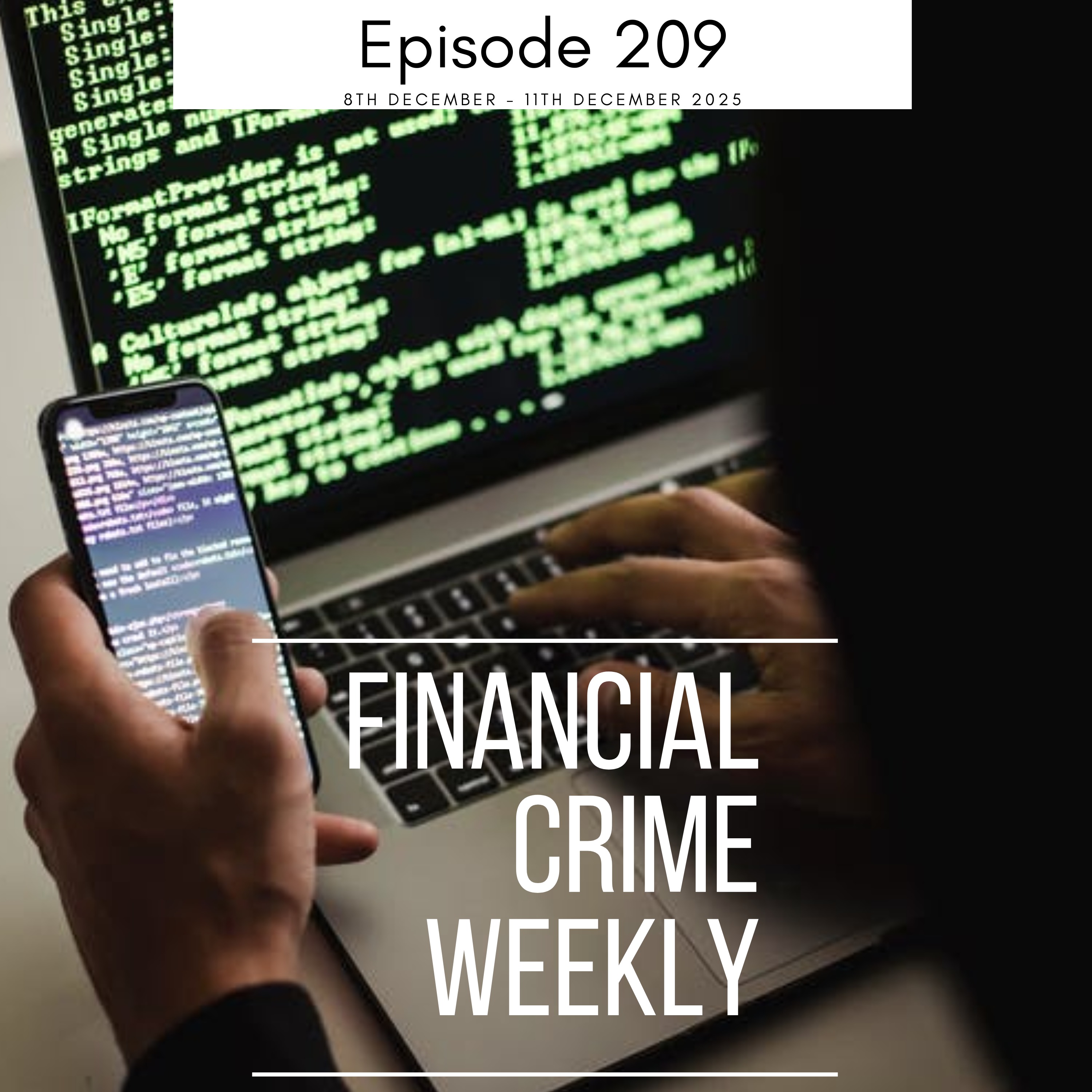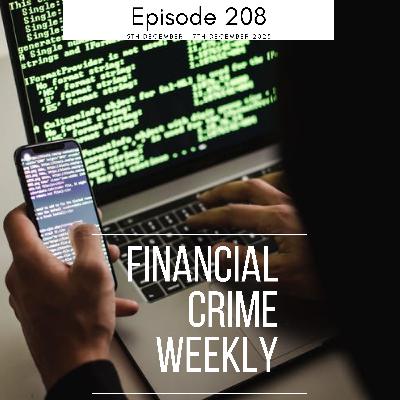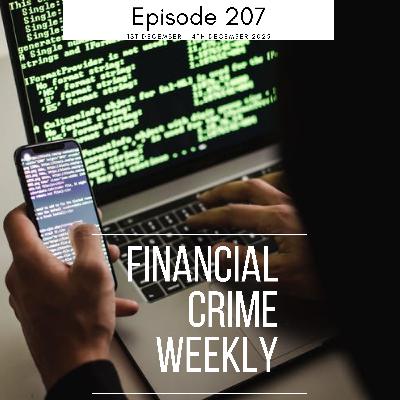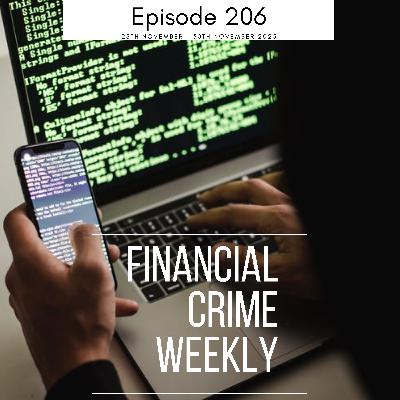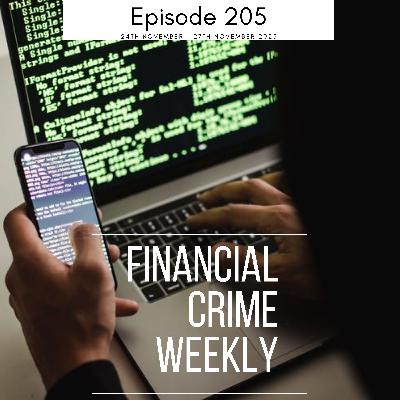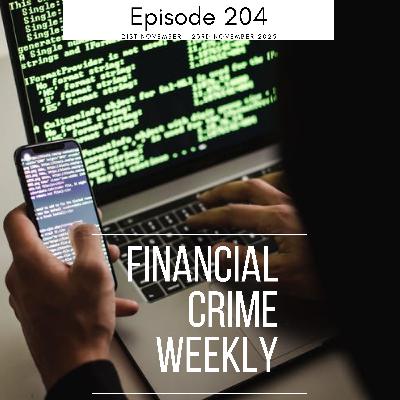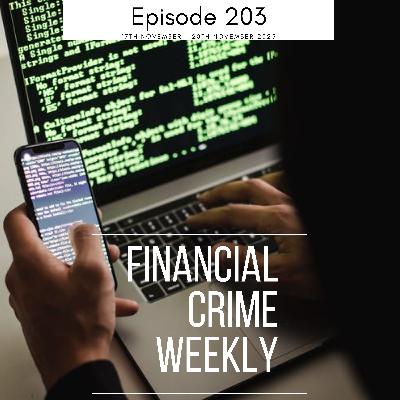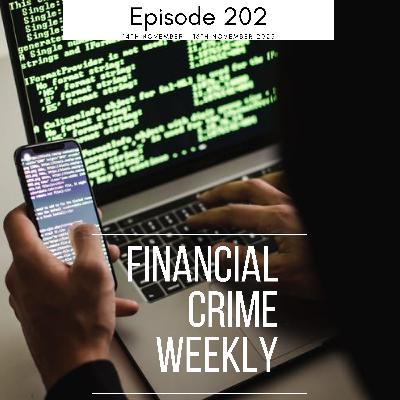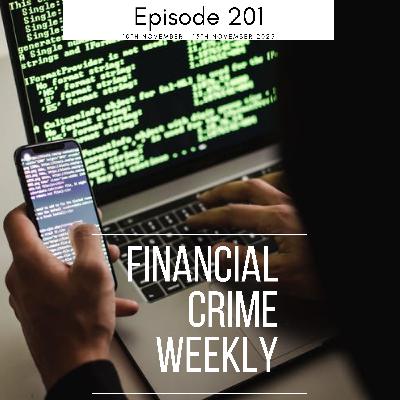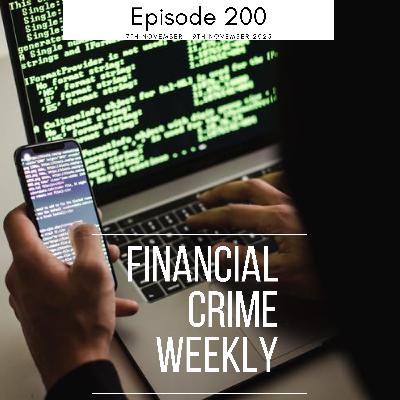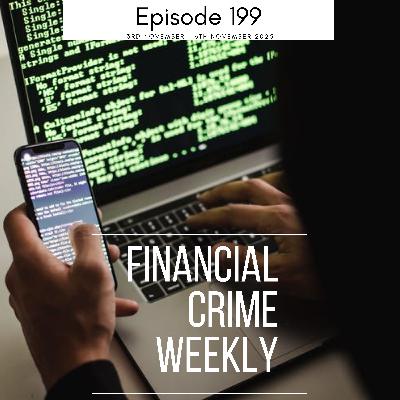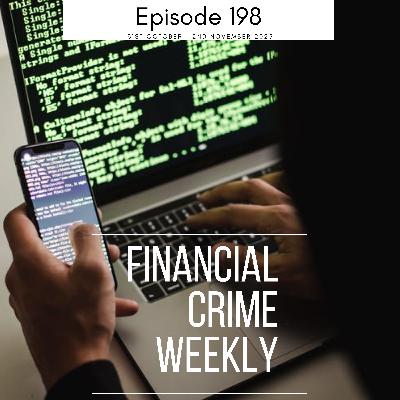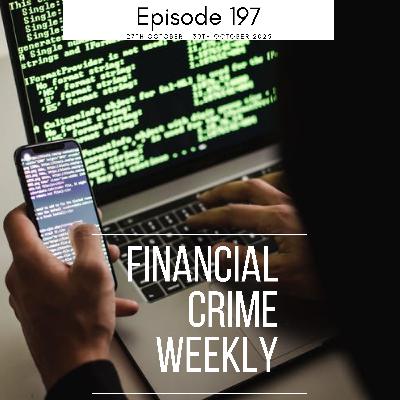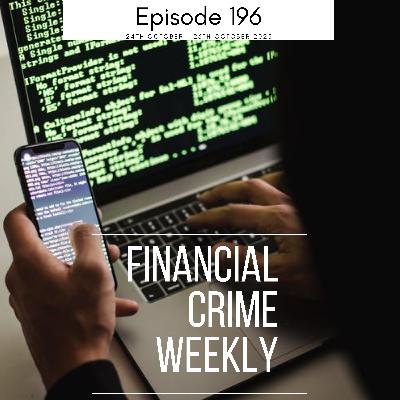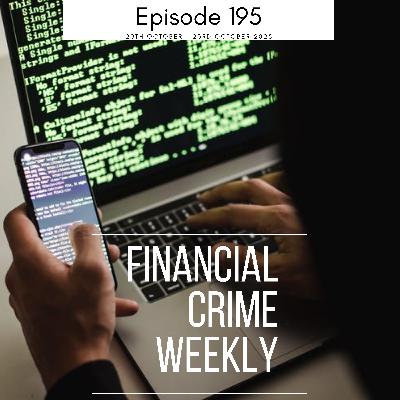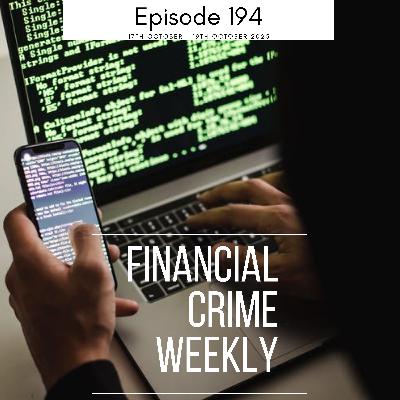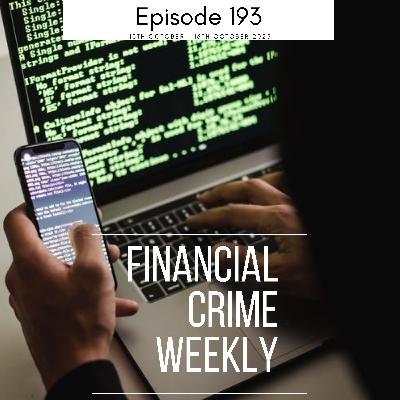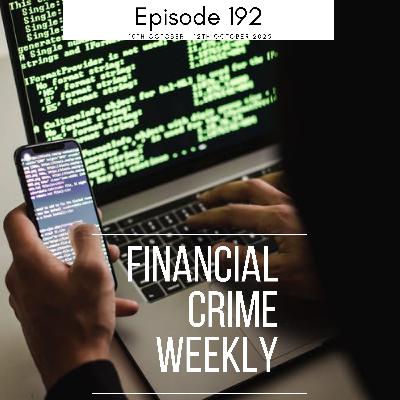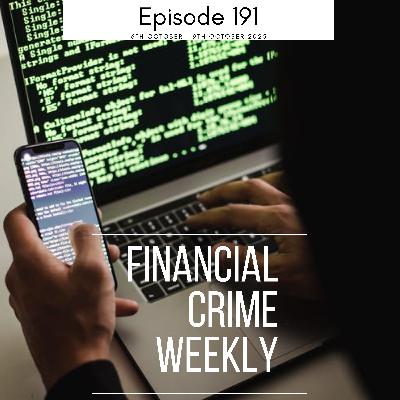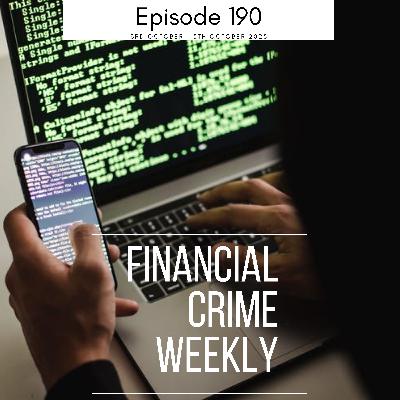
Financial Crime Weekly Podcast
Author: Christopher Kirkbride
Subscribed: 50Played: 896Description
Welcome to the Financial Crime UK Weekly podcast. I’m Chris Kirkbride and I lecture law.
This is an introductory podcast to give you a guide as to the sort of things which we will be looking at on this podcast in the first week of every month. However, there will be specials and additional podcasts out of this sequence if something happens which is significant and deserves a special episode.
So, what are the sort of things we’ll be talking about? Well, we will cover news, events, legal developments, and anything else that relates to financial crime, in the UK – obviously, because that is in the podcast title – but also in other jurisdictions. No man is an island and financial crime certainly does not respect national borders.
Broadly, the coverage will be all aspects of:
Fraud | Bribery | Market abuse and insider dealing | Money laundering and terrorist financing | Data and information theft | Cybercrime (phishing / smishing) and the challenges generated by fintech in terms of finance crime threats.
While these might be financial crimes, strictly speaking, but that is not all. It is necessary to reflect on the responses to financial crime which the state adopts. While this is less about fines and imprisonment, we will focus on confiscation and recovery schemes, sanctions imposed on those who have committed financial crimes, together with arrangements designed to allow the offender to avoid/defer prosecution, namely, deferred prosecution agreements.
Consideration will also be given to the regulatory architecture of financial crime, both domestic and international – as stated, financial crime does not respect borders – together with regulatory enforcement and aspects of the compliance industry – the industry which helps commercial entities stay on the right side of the law.
Finally, and this is a particular interest of mine, but I am fascinated by the interface between criminal and civil law where the facts of an event could lead to prosecution or civil action. Consequently, while this is a financial crime podcast, we will also consider those situations where the civil law might bring about a robust response to financial wrongdoing.
So, that’s it from me for now except to say that the podcast is available from the usual places, Google Podcasts, Spotify, iTunes, and others.


